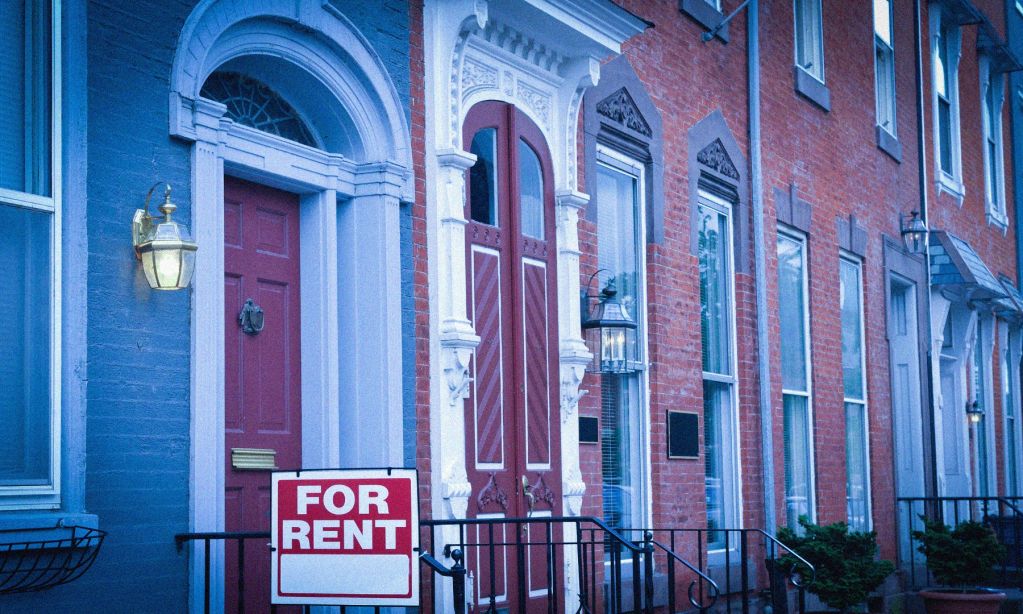The federal government is taking measures to crack down on illegal short-term rental housing on platforms like Airbnb. This is an important move towards reining in illegal short-term rentals, but the feds should go one step further.
As part of last week’s fall economic statement, federal Finance Minister Chrystia Freeland announced a $50 million fund for municipalities to enforce short term rental regulations—and measures to deny income tax deductions on short-term rental income in areas that have either banned short-term rentals or where short-term rentals are non-compliant.
The feds aren’t the first to tackle the issue. British Columbia’s government passed Bill 35, the Short-term Rental Accommodation Act, in October—a piece of legislation that is now leading Canada in housing-protective short-term rental legislation. Bill 35, for its part, took some inspiration from provincial legislation that the Quebec government passed following a deadly fire in an illegal Airbnb that killed six people in March 2023.
These higher levels of government are only stepping into the regulatory sphere for short-term rental platforms like Airbnb now—several years after municipalities like Vancouver, Toronto, and Montreal passed local zoning bylaws and business licensing regimes to regulate how people use short-term rental platforms. Policy-makers have generally tried to prevent real estate investors from buying, leasing or otherwise acquiring residential housing stock to turn it into dedicated, full-time, short-term rental inventory—basically, illegal and unregulated hotels—while still enabling regular people to share their own homes to generate some additional income.
Even though many municipalities have put rules in place, they haven’t put sufficient resources towards enforcement. A 2019 study found that Canada had lost over 31,000 homes to dedicated short-term rental inventory—homes rented frequently to be unavailable to long-term tenants. The same researchers released a report earlier this fall, showing that British Columbia lost 16,810 homes to commercial short-term rentals.
A recent short-term rental market overview for Calgary found that around 1,580, or 28 per cent of all short-term rental listings in that city were full homes operating on short-term rental platforms full-time—in other words, operating as hotels. Since the resurgence of short-term rentals post-COVID, the number is likely closer to 40,000 housing units that short-term rentals have taken from long-term tenants across Canada today.
Even with obvious shortcomings in the federal housing plan—a lot more investment is needed in social housing, co-op housing and community land trusts to address Canada's housing crisis—the federal short-term rental enforcement fund and associated tax initiatives are nonetheless very welcome measures in the fight against the further deterioration of housing supply in Canada. They also point towards a substantial shortcoming in federal approaches towards digital platforms more generally.
Municipal, provincial and now federal governments are honing in on platforms like Airbnb because these companies don't play by our rules. Airbnb and others download responsibilities to thousands of individuals, sending reminders to ensure hosts’ listings follow local bylaws and regulations. After that, they wash their hands of their inventory.
Because digital platforms are not held accountable for the content they advertise and profit from, regulators are forced to play a game of whack-a-mole—finding, identifying and fining illegal short-term rental hosts, one at a time. Even in places like Toronto, where platforms must share data, have an operating license and display a city-issued permit number on every short-term rental property listed online, it is still up to the municipality to police Airbnb's inventory, respond to complaints and ask the platforms to remove illegal properties or hosts.
One would think that a data platform that uses AI and machine learning to identify illegal parties —as Airbnb has admitted it does—could easily automate the de-listing of non-compliant properties in its major markets.
Airbnb also continuously opens new loopholes to make enforcement more difficult and allow the rental of properties as unencumbered as possible.
In Toronto, for instance, the city's zoning bylaw defines short-term rentals as rentals for 28 days or less, and requires short-term rental properties to have a license. Instead of de-listing investment properties that were effectively banned once the bylaw came into effect, the company changed the booking terms of its now illegal investment properties to more than 28 days. Now, out of the 19,932 total listings on Airbnb's platform, only 6,123 are short-term rentals. Over 13,000 can be either booked month-to-month at inflated prices or have become part of a sophisticated network of short-term rental hosts who have figured out a way to skirt the rules.
The federal initiative has the potential to help municipalities free up as many as 40,000 units that were planned, approved, and built as residential but have since been converted into commercial short-term rentals. That is up to $36 billion worth of housing stock turned into Airbnb's hotel inventory at no charge to the company—if we consider that it now costs about $1,200 per square foot to build a unit and that the average size of the unit is about 750 square feet.
If the $50 million federal enforcement fund helps bring back even half of this inventory, it is money well spent, and there will be 20,000 additional homes on the market.
The enforcement fund will be helpful for municipalities to do their job more effectively, and the real or perceived threat of a CRA audit will change the profit calculus of many commercial short-term rental operators. But these measures represent an admission that even our federal government engages with platforms like Airbnb on their playing field, by still going after individual operators who fraudulently advertise illegal properties on short-term rental platforms.
Rather than just playing Airbnb’s game, the federal government should change legislation to hold digital platforms themselves to the same standards as their analog counterparts—hotels. The European Union is currently engaged in some of these initiatives. Canada needs to catch up with its digital platform regulation, so platforms can be forced to comply with our laws and regulations and stop downloading their responsibilities to tens of thousands of individuals.
Going after individual operators of illegal short-term rentals is fine and important, especially in a moment of housing crisis like this. But a long-term fix to this problem means going after the actual platforms, and not just their users.







